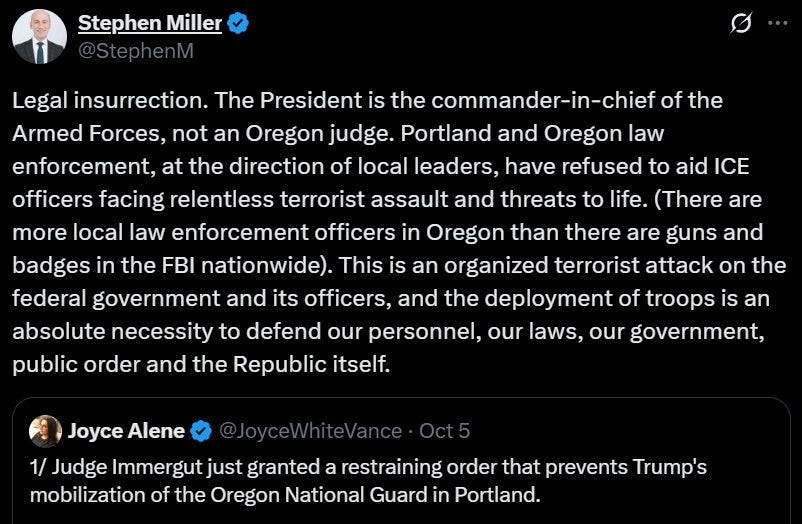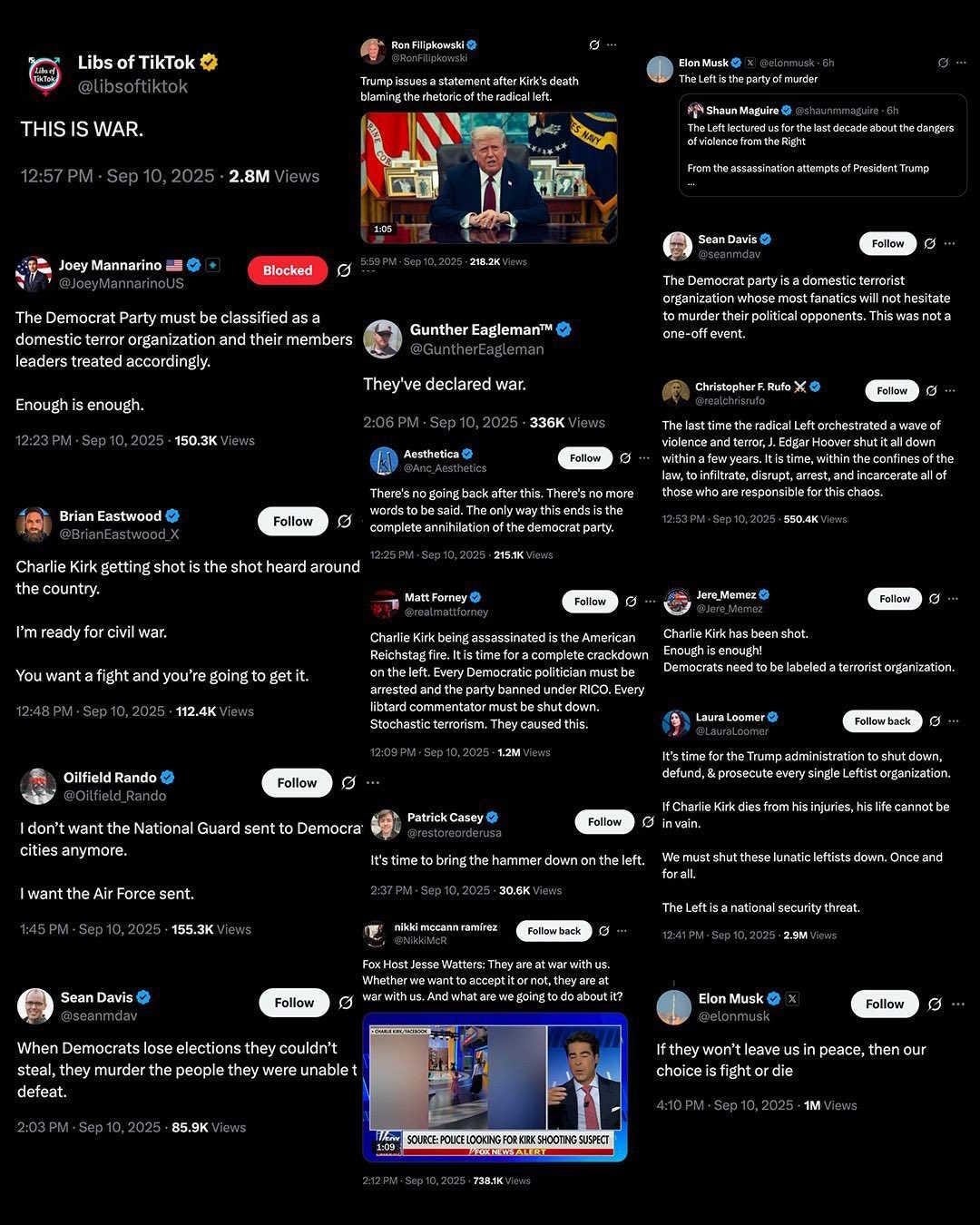The U.S. political situation
It's not great. But if we want, we can still get things back on track.
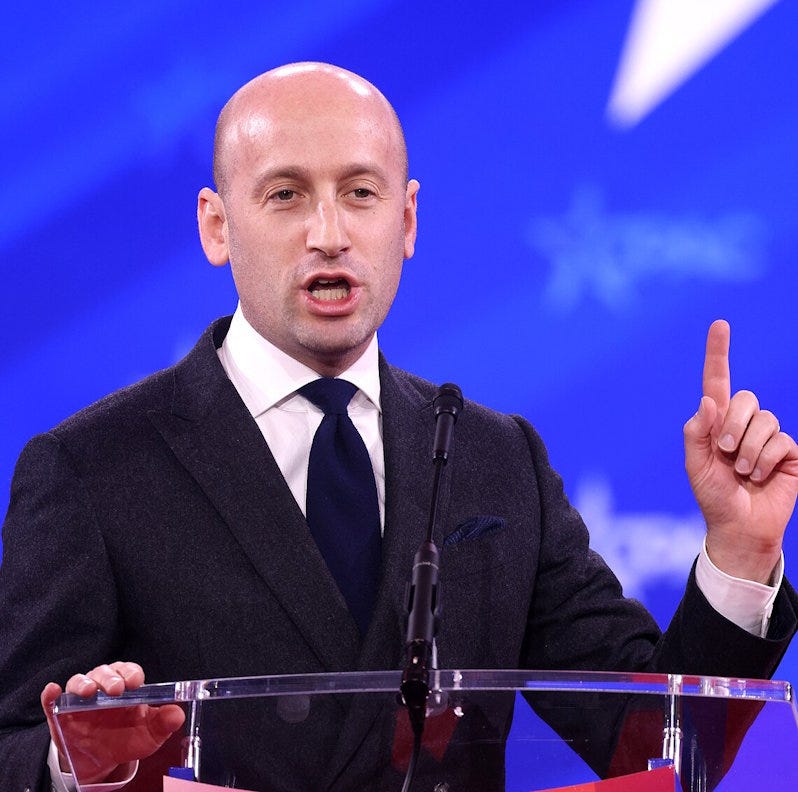
I don’t particularly like to write about the U.S. political situation, but I do it. American politics is never particularly tranquil, but there are certainly smoother periods, and it’s in those times when econ policy wonks like myself really flourish. When we know who’s in charge, and what they want, and everyone basically accepts their legitimacy, you can write things like “I think we should replace the corporate tax with a Destination-Based Cash Flow Tax”, and you can imagine that people might even listen to you and there might even be some policy momentum in the direction of your idea. But at times of political conflict, wonkish concerns about optimal policy get drowned out by the imperatives of raw power. No one wants to hear about the DBCFT during a civil war.
America is not in a civil war right now. This is a simple, plain, obvious fact. There is no large-scale violence between organized groups. In fact, there’s some evidence that political violence has been going down for a few years now. Here’s CSIS’s data on terrorist attacks:
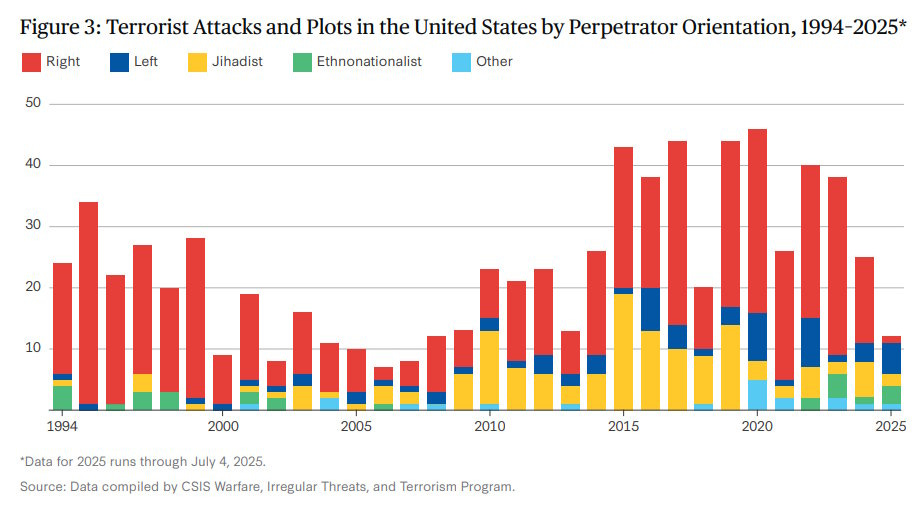
Alternative data sets largely paint the same picture.
Left-wing terrorism has increased a bit this year, including the murder of Charlie Kirk, but it’s still at a pretty low level. Right-wing terrorism has collapsed this year, possibly because rightists are more satisfied with Trump in power (though this didn’t seem to deter them during Trump’s first term). And the wave of jihadist attacks in the 2010s has faded. There are certainly some minor clashes between ICE and protesters in American cities, but nothing really big, and to my knowledge no one has been killed yet.1
So not only is the U.S. obviously not in a civil war, we also aren’t experiencing anything like Italy’s Years of Lead or Ireland’s Troubles.
But this has not stopped the Trump administration and many of its supporters from talking as if the United States is in a civil war. Donald Trump says this regularly. For example, here’s what he said to a gathering of generals at Quantico a week ago:
America is under invasion from within. We’re under invasion from within, no different than a foreign enemy, but more difficult in many ways because they don’t wear uniforms…These people don’t have uniforms. But we are under invasion from within. We’re stopping it very quickly. After spending trillions of dollars defending the borders of foreign countries, with your help, we’re defending the borders of our country from now on…It’s a war from within. Controlling the physical territory of our border is essential to national security. We can’t let these people live.
Who does Trump think America is at war with? The answer seems clear. It’s A) immigrants, especially (but not exclusively) illegal immigrants, and B) any Americans who try to oppose Trump’s deportation efforts. Just today, Trump threatened to invoke the Insurrection Act against anti-ICE protesters in Portland.
Stephen Miller, Trump’s powerful advisor, has broadened his definition of the enemy to include judges who rule against Trump’s policies:
And of course in the aftermath of the Charlie Kirk assassination, a very large array of right-wing people declared that America was in a “war”:
Democrats have been much more reluctant to use this sort of violent language. But there are a few cases, such as Virginia politician Jay Jones:
Jones…imagined a hypothetical situation in which he had two bullets and needed to decide whether to shoot [GOP state legislator Todd] Gilbert, Adolf Hitler or Pol Pot. “Gilbert gets two bullets to the head,” Jones wrote. “Spoiler: put Gilbert in the crew with the two worst people you know and he receives both bullets every time.”…“Yes, I’ve told you this before,” Jones [said]. “Only when people feel pain personally do they move on policy.”
And when you poll people about whether violence should be used to create social change, you get a startling number of progressive youngsters saying “yes”:
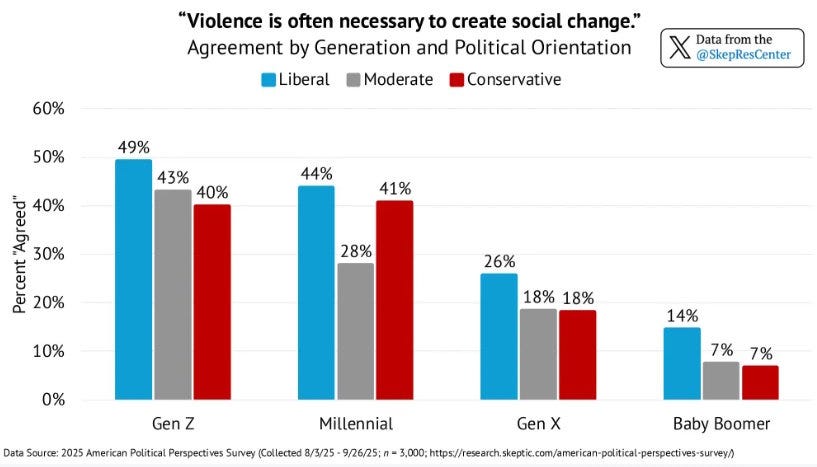
It’s reasonable to see all this and be afraid that America is about to have an actual, real civil war. Yes, the numbers probably overstate the percent of people who would be willing to actually countenance violence. But any normal person would see polls like this and be worried.
So what’s going to happen next? And how did we get to this juncture? Unfortunately, we’ve reached the point where I’m forced to think about this if I want my ideas and opinions to stay relevant. So here are my assessments of the two broad “sides” in this so-far-mostly-rhetorical conflict, and where things might be headed.


